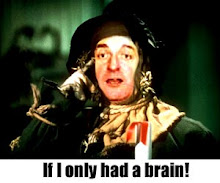Thor
I'm really starting to get tired of all this superhero stuff.
Just as Ang Lee seemed an odd choice for 'Hulk' (and he was), Kenneth Branagh is not the kind of director you would automatically associate with a Marvel comic book adaptation such as 'Thor'. Funnily enough though, he is more appropriate than any of us had a right to think. Branagh manages to find the 'luvvie' side of Thor; an arrogant, uppercrust toff speaking cod Shakespearean English with a devoted band of jovial warrior friends and a veteran Shakespearean actor for a father (Anthony Hopkins). He is cast out of his privileged life to mix with the plebs (ie. beautiful human scientists like Nathalie Portman). Indeed, with his love of brawling, broad humour and comical arrogance, there is something very Falstaffian about this 'Norse god'. So a bit "Henry V" then. Those perpetually cheery friends add a sprinkling of "Peter's Friends". Loki's sibling machinations echo any number of Shakespearean villains, while wise old king, Odin, offers a good stand-in for Lear. Worst of all though is the general jovial sense of cosy safety that pervades everything. It's 'Much Ado About Nothing' only about nothing.
Which is not to say that for all the shadow of the Bard, that this is anything more than a shallow pantomime. Much as I have liked some of Branagh's directorial work in the past, I always felt he failed to get below the surface, even with a play so foolproof as 'Hamlet'. Here shallowness is the name of the game. Healthy lust masquerades as love, while showy bravado pretends to be courage. The story calls for Thor's character to mature and sure enough he goes from brash and childish to gentle and considerate. That this happens in almost one scene is difficult to accept though. We get no real sense of development, just a sudden shift from one end of the scale to the other. And it is questionable if this change is actually a maturing of character; much as courtly kissing of hands might appeal to some people's sense of romance, isn't that kind of romance just as naive as the brash brawler's bon homie. Only Tom Hiddleston's Loki manages any real depth, and to be fair to the scriptwriters, his character, rather than being made a conventional villain, is given a level of complexity befitting the Norse original. Still, it's more hinted at than properly explored.
I have other minor gripes. Patrick Doyle's music, for instance, is annoying and lacking in any real sense of wonder. I never really liked his work, though Branagh who uses him extensively, obviously does. Here he gives us the requisite bangs and booms, but it's by the book stuff.
The effects didn't impress me either, at least in the Asgard sequences. I have no qualms with CGI, and I don't really object to stylised effects sequences, but here the world of Asgard is so obviously artificial as to warrant comparison with a cartoon. I must qualify that though, by saying that it is a reasonably original conception, and ugly though elements such as the rainbow bridge are, they do chime well with the original myths.
I'm being grumpy and I know it. There is nothing monumentally wrong with 'Thor'. It is good, honest family fare and liable to sell a lot of action figures to kids coming to Norse myths for the first time. Even it's anti-war (or at least tempered militarism) subtext is refreshing in such a mainstream film. But I cannot help but lament the missed opportunities in superhero movies such as this. Comic book superheroes are modern fairy tales and like their earlier predecessors, they navigate notions and emotions otherwise difficult for a young (and sometimes not so young) audience.
In the book, 'Men of Tomorrow', the history of the American comic book is detailed. Many of the creators of these costumed heroes were the children of poor Jewish immigrants, and grew up in urban worlds full of crime and poverty. Their creations were a reimagining of their struggle for a better life and provided a tentative fantasy solution to real-life dilemmas. In this sense superhero stories constitute the myths of today. We shouldn't trivialise them and with the money Hollywood is throwing at them, we shouldn't have to.
Okay, gripe over. Bring the kids.


0 Comments:
Post a Comment
<< Home